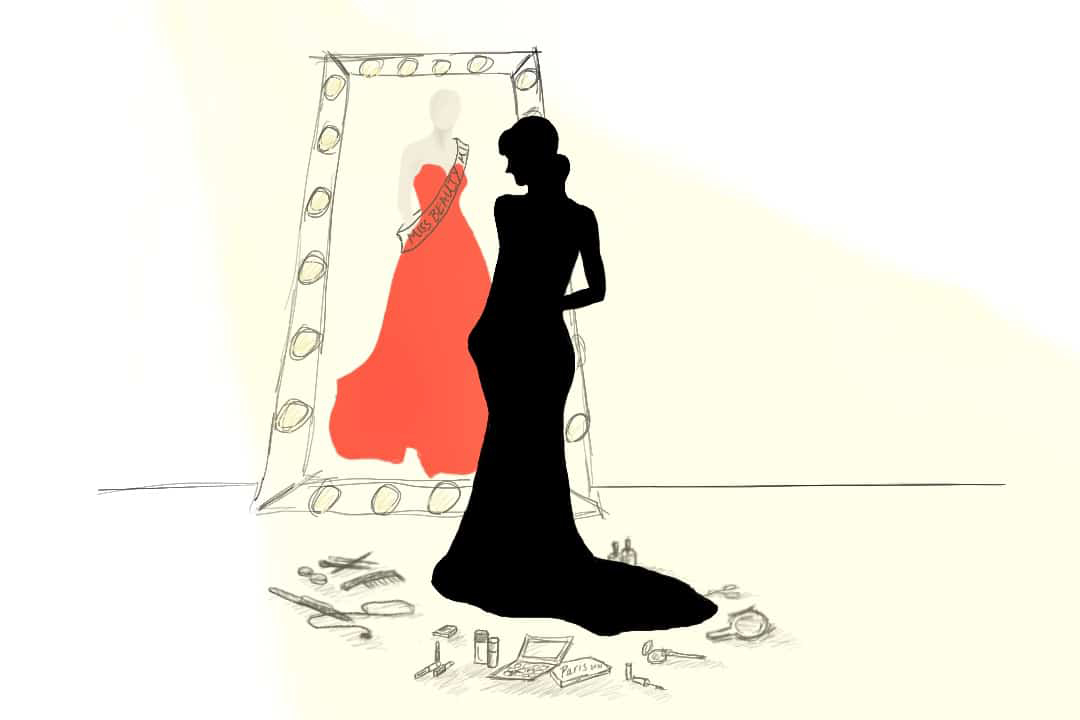Beauty contests have been around for a long time. In Ancient Greece, annual beauty contests were called ‘Euandria,’ which involved male contestants. In medieval Europe, celebrations such as the English May Day involved beauty pageants that ranked women based on their facial attributes.
The earliest beauty pageants were just that: beauty competitions. Throughout the years, however, beauty pageants have become a staple of popular culture. One of the most famous pageants, Miss World, has raised more than US$500 million for charity since its inception in 1951.
The first Canadian beauty pageant was Miss Canada. Held in 1946 with 40 participants, Miss Canada’s first edition took place in Hamilton, Ontario. With 7,000 spectators, the edition was solely a swimsuit contest. The following editions were expensively televised on CTV. After the Miss Canada trademark gained huge success in the 1980s, the competition came to an end in 1992 due to lack of donations. This abrupt ending was praised by many Canadian feminists, including Judy Rebick, who thought that beauty pageants were “a symbol of the exploitation and oppression of women.”
Miss Canada is not the only pageant that has received criticism from feminists. Throughout the years, many international pageants have become popular for representing conventionally attractive people, much to public dismay. Talking about Miss America, Tricia Bishop, the deputy editorial page editor for The Baltimore Sun, said that “beauty pageants should die out like the dinosaurs they are.” As our society is becoming more aware of misogynistic practices and customs, beauty pageants seem like an outdated dog show for women.
As a young woman discovering her own womanhood, I know that being a woman means navigating the male gaze every day. I’ve gotten into arguments with teachers about dress codes and bra straps. I’ve been a victim of catcalling and have received creepy messages from men on Instagram.
While I cannot deny my disdain for misogyny, I’ve still always felt drawn to pageantry. In January, I submitted a candidacy to participate in Miss Canada 2022. To my surprise, I was selected as a finalist and will be defending my campaign in Montréal later this year.
Once my participation was confirmed, I was excited and anxious. On one hand, I felt honoured to join the competition knowing I had zero prior experience in the pageant world. On the other hand, I felt more conscious of my appearance. Was I entering an objectifying environment that would possibly impact my body image? Many questions like this flew around my mind as I tried to accept both parts of me — the feminist and the potential beauty queen.
After doing my research, I’ve come to the conclusion that beauty pageants and female empowerment aren’t inherently compatible — but they can be. Miss Canada is a perfect example. After its return from a 15-year hiatus, the Canadian pageant committed to change its priorities.
On its website, the Miss Canada pageant describes itself as a competition that evaluates contestants based on values such as team spirit, participation, comradeship, and charisma. Moreover, Miss Canada does not impose height and weight requirements. Needless to say, our national pageant has come a long way from hosting swimsuit competitions in the park.
It is relieving to see that competing in a pageant would not lead me to lose my feminist principles. I believe that other pageants can be compatible with feminism too, as long as they prioritize contestants’ values, attitude, and campaign over their silhouettes. As a next step, it would be great if contestants’ silhouettes weren’t examined at all.
To those who believe that pageants are outdated and shouldn’t exist anymore: thinking this way is a close-minded approach to change. Yes, beauty contests have a dark history of degradation. But, with honest commitment to inclusion, they can easily turn into meaningful spaces for contestants to showcase their intelligence, ingenuity, compassion, and creativity.
In my opinion, feminism is not about telling women what empowerment looks like — it’s about giving us the space to define empowerment for ourselves. Some women are dignified by entering men-dominated industries while others find their own power through fashion and makeup. So we should be wary of spending our time demonizing stereotypically feminine interests; that time could instead be used to dismantle chauvinism of men.
After all, the villain isn’t the beauty queen — it’s the pervert checking her out.


